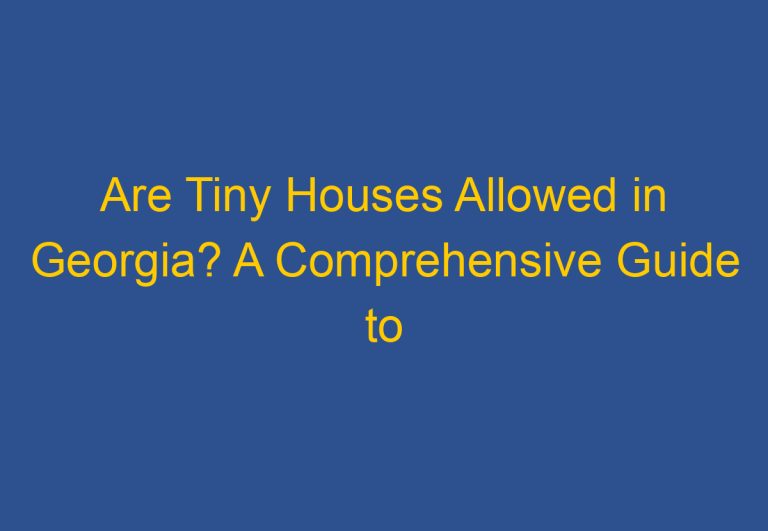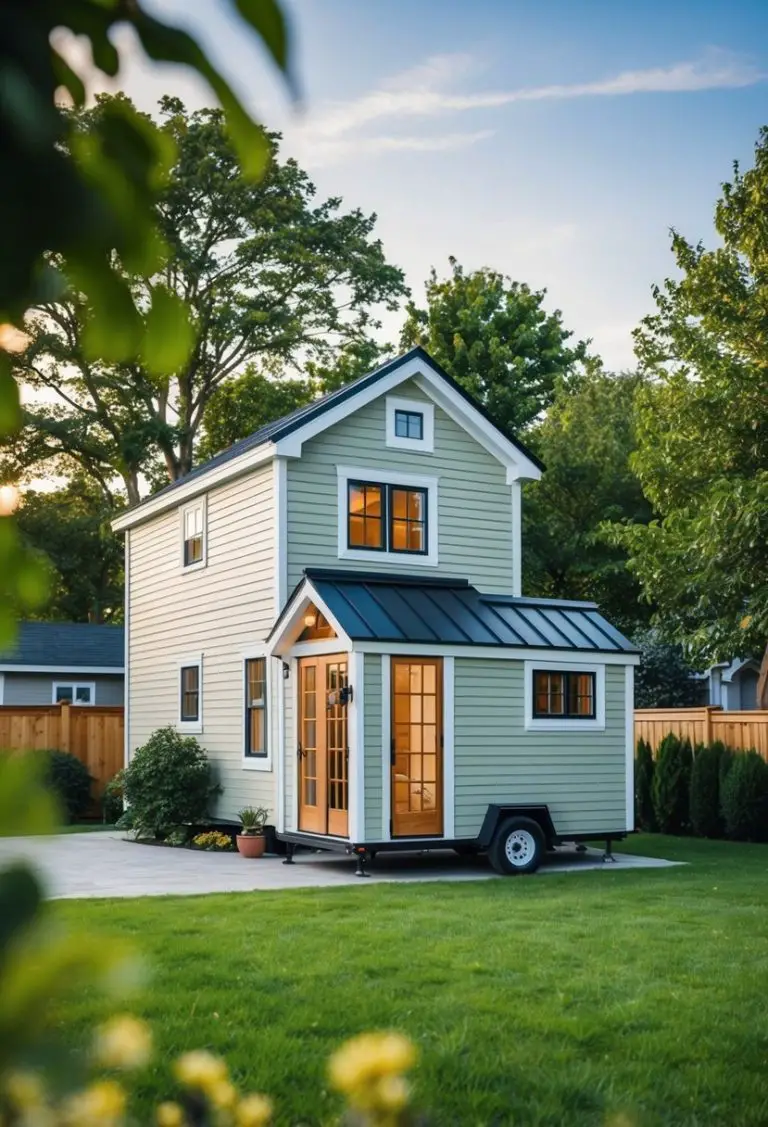Are Tiny Houses Legal in Nevada? A Clear and Confident Answer
Tiny houses have been gaining popularity in recent years due to their affordability, mobility, and eco-friendliness. However, before investing in a tiny house, it is important to know the legal requirements in the state where you plan to live. In Nevada, tiny houses are legal, but there are rules and regulations that must be followed.
One of the most important factors to consider when building or living in a tiny house in Nevada is zoning. Counties with 100,000 or more residents and cities with 150,000 or more residents adopt zoning regulations for small dwellings. The zoning districts in which tiny homes are accessory dwellings, single-family residential units, or situated in small house communities are the most common. It is also important to note that the State of Nevada passed Ordinance SB150-N Act, requiring a county or city governing body to approve tiny houses in a specific zoning district.
When it comes to the size of tiny houses, Nevada does not have any specific requirements. However, local regulations for building tiny homes depend on whether they are on foundations or wheels. It is important to do thorough research and obtain the necessary permits before building or living in a tiny house in Nevada. By following the rules and regulations, individuals can enjoy the benefits of tiny house living in the state of Nevada.
Legality and Zoning Regulations
Statewide Regulations and SB150
Nevada is one of the states that have adopted regulations that govern the construction and occupancy of tiny houses. The state has passed Ordinance SB150-N Act, which requires a county or city governing body to approve tiny houses in a specific zoning district. The act sets forth certain requirements for a tiny house and a tiny house park. It also revises certain requirements for the issuance of receipts to tenants of tiny houses.
Local Zoning Laws and Ordinances
Local zoning laws and ordinances play a crucial role in determining whether tiny houses are legal in a particular area. Counties with 100,000 or more residents and cities with 150,000 or more residents adopt zoning regulations for small dwellings. In Nevada, local authorities have the power to regulate zoning restrictions, building codes, and other related issues.
Accessory Dwelling Units and Tiny House Parks
In Nevada, tiny houses are considered accessory dwelling units (ADUs) and can be used as a primary residence or as a rental unit. However, the state’s building code requires that tiny houses on wheels must be placed on a foundation to be considered legal. Tiny house parks have also become popular in Nevada, with several communities emerging in recent years.
In conclusion, Nevada is one of the states that have embraced the tiny house movement and has passed regulations to govern the construction and occupancy of tiny houses. However, local zoning laws and ordinances play a crucial role in determining whether tiny houses are legal in a particular area. Therefore, it is important to check with the local authorities before embarking on a tiny house project in Nevada.
Building and Living in Tiny Houses
Construction and Size Requirements
Building a tiny house in Nevada requires adhering to specific size and construction requirements. For a single person to live in a tiny house, the living space must be at least 200 square feet. If you are a family of two, the tiny house must have a minimum of 200 square feet of living space. The maximum size is 400 square feet, and the height must not exceed 15 feet. The construction should follow the International Residential Code (IRC) or International Building Code (IBC) guidelines.
Utilities, Foundations, and Movement
Tiny houses require the same utilities as traditional homes, but they are often designed to be more sustainable and eco-friendly. They can be connected to the grid, use solar power, or a combination of both. For water and sewage, you can connect to the city’s system or use a septic tank. Foundations can be either a permanent foundation or a trailer. If the tiny house is on wheels, it is considered a recreational vehicle, and you can move it around. But if it is on a permanent foundation, it is subject to local zoning regulations.
Community and Lifestyle
Living in a tiny house is not just about the house itself but also about the lifestyle it promotes. Tiny houses are often associated with a minimalist lifestyle, where people focus on living with less and reducing their ecological footprint. Tiny house communities in Nevada, such as the Las Vegas Nevada Tiny House Tribe, Northern Nevada Homesteaders, and Las Vegas Minimalist Meetup Group, offer opportunities to connect with like-minded individuals and share ideas about sustainable living.
In conclusion, building and living in a tiny house in Nevada requires adhering to specific regulations regarding construction, size, utilities, foundations, and movement. However, it also offers the opportunity to embrace a sustainable and minimalist lifestyle and connect with a community of like-minded individuals.
Frequently Asked Questions
What are the zoning regulations for tiny houses in Nevada?
In February 2021, the State of Nevada passed Ordinance SB150-N Act, requiring a county or city governing body to approve tiny houses in a specific zoning district. Counties with 100,000 or more residents and cities with 150,000 or more residents adopt zoning regulations for small dwellings. The zoning districts in which tiny homes are accessory dwellings, single-family residential units, or situated in small house.
Can you legally reside in a tiny house in Las Vegas?
Yes, you can legally reside in a tiny house in Las Vegas, as long as it meets the zoning and building regulations. The Las Vegas City Council has approved the use of tiny homes as accessory dwelling units (ADUs) in residential areas.
Are there any designated tiny home communities in Nevada?
Yes, there are designated tiny home communities in Nevada. One example is the Escalante Village in Reno, which is a community of 42 tiny homes. However, it’s important to note that not all tiny homes are located in designated communities and must comply with local zoning and building regulations.
What is the minimum square footage required for a dwelling in Nevada?
There is no statewide minimum square footage requirement for a dwelling in Nevada. However, local zoning and building regulations may require a minimum size for a dwelling unit.
Is it possible to build and live in a tiny house in Nye County, Nevada?
Yes, it is possible to build and live in a tiny house in Nye County, Nevada. However, it’s important to check with the county’s building and zoning department for specific regulations and requirements.
What are the legal requirements for selling a tiny house in Nevada?
The legal requirements for selling a tiny house in Nevada are similar to those for selling any other type of home. The seller must provide a disclosure statement that includes information about the property, such as any known defects or issues. Additionally, the seller must comply with any applicable state and local laws and regulations regarding the sale of real estate.










